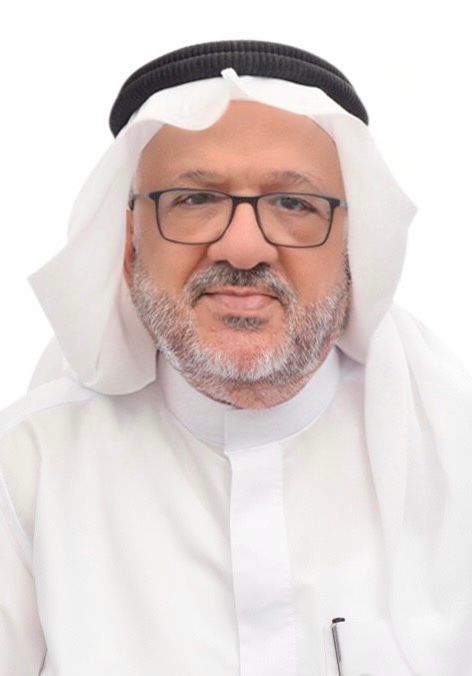Zaghloul El-Naggar, A Scholar Who Carried the Dignity of Knowledge

“The cause of Islam is just, but it is often presented with weak tongues.” — Sheikh Muhammad Al-Ghazali
With these words that summarize the crisis of Islamic discourse and the
balance of dignity within it, the life of Professor
Zaghloul Ragheb El-Naggar stands as living testimony to a scholar whose
tongue was never weakened by facts, nor whose spirit ever compromised on truth.
His soul ascended in Amman on November 10, 2025, leaving the Islamic world
bereft of one of its most prominent scientific and missionary figures of the
age. His funeral was held at Abu Aisha Mosque, and he was buried in Umm
Al-Qutain Cemetery in Naour District.
Early Life and Education
Dr. El-Naggar was born in 1933 in the village of Mishal in Gharbia
Governorate, into a household steeped in knowledge and the Quran. His
grandfather was the village imam, and his father a memorizer of the Quran. He
memorized the Quran as a child, with his father correcting his recitation—even
while he slept—an image that reflects the nurturing environment that early
shaped his awareness and faith.
He later moved to Cairo to continue his education, excelling remarkably
from his earliest years. In a high school Arabic language competition, he won
first place, while his teacher ranked forty-second stories often recalled as
proof of his literary and scientific brilliance.
Choosing Earth Sciences and Facing Challenges
He chose to study earth sciences at Cairo
University, earning his Bachelor of Science with honors in 1955 and the
Baraka Prize for Earth Sciences. Yet his academic path was not smooth;
political circumstances prevented his appointment as a teaching assistant due
to his Islamic orientation.
As Ali
Izetbegović once said: “Remaining steadfast on principle is harder
than bearing arms, but it is the only path to victory.”
This was his reality as he moved between Sahara Petroleum Company,
phosphate mines, and demanding work sites, refusing to let hardship extinguish
the flame of knowledge or the light of faith within him.
Academic Achievements and Global Presence
He persevered until he earned his PhD from the University of Wales in
1963, received a fellowship, and attained professorship in 1972. He went on to
teach at Ain Shams University, King Saud University, Qatar University, Kuwait
University, King Fahd University of Petroleum and Minerals, as well as at the
University of Wales, other British institutions, and several higher institutes.
His final post was at the World Islamic Sciences and Education University
in Amman. He was present everywhere, leaving an impact, a scientific imprint,
and a steadfast missionary vision. As Ibn Rushd said: “Knowledge that does
not lead to faith is disguised ignorance.”
Courage in Trials and Divine Care
His life was marked by rare courage. During his imprisonment, he
recounted a vision he saw before his trial: he dreamed of himself in a prison
vehicle, seeing the road as never before, then witnessing the Prophet ﷺ enter the courtroom as his advocate,
asking the judge to acquit him. The next day, the vision came true exactly as
he had seen it, and he was acquitted.
Such moments do not merely shape a scholar, but build a man connected to
God, aware that divine care never abandons the truthful.
Speaking Truth to Power
Another defining moment came at the British Foreign Office after the
London bombings in 2005. While the Azhar delegation sought to defend Islam, Dr.
El-Naggar chose the language of
strength, not apology. He addressed the British official: “Who began the
aggression? Who occupied our lands? Who killed innocents in Palestine, Iraq,
and Afghanistan?”
Silence followed, then the official replied: “If only everyone spoke
with your honesty.”
Here the spirit of the hadith shines: “The strong believer is better
and more beloved to God than the weak believer.” His words echoed Ibn
Taymiyyah’s maxim: “Dignity lies not in sheer strength, but in speaking the
truth before a tyrant ruler.”
Scientific Legacy and Media Contributions
Dr. El-Naggar left behind a vast
scholarly legacy: more than 150 research papers and 45 books in Arabic,
English, French, and German, in addition to his media programs, including his
series on social miracles on Iqraa TV, and his appearance on Without Borders
discussing the dangers of earthquakes and volcanoes.
Mentorship and Timeless Advice to Youth
He was not only a scholar but also a mentor of generations. His timeless
advice to youth embodied his entire experience: counsel on steadfastness,
balancing religion and worldly life, protecting the mind from doubts, and
making the Quran a way of life.
As Imam
Al-Shafi‘i said: “No nation is lost when it has men who uphold the
truth.”
A Scholar Remembered
May God have mercy on Professor Zaghloul El-Naggar—an intellect that read
the universe with the eye of a geologist, a heart that feared God, a tongue
that spoke truth, and a man who never abandoned the dignity of Islam nor its
mission.
And may God have mercy on the successor Abdullah
ibn Al-Mubarak, who said: “The death of a scholar is a breach in
Islam that nothing can fill.”











